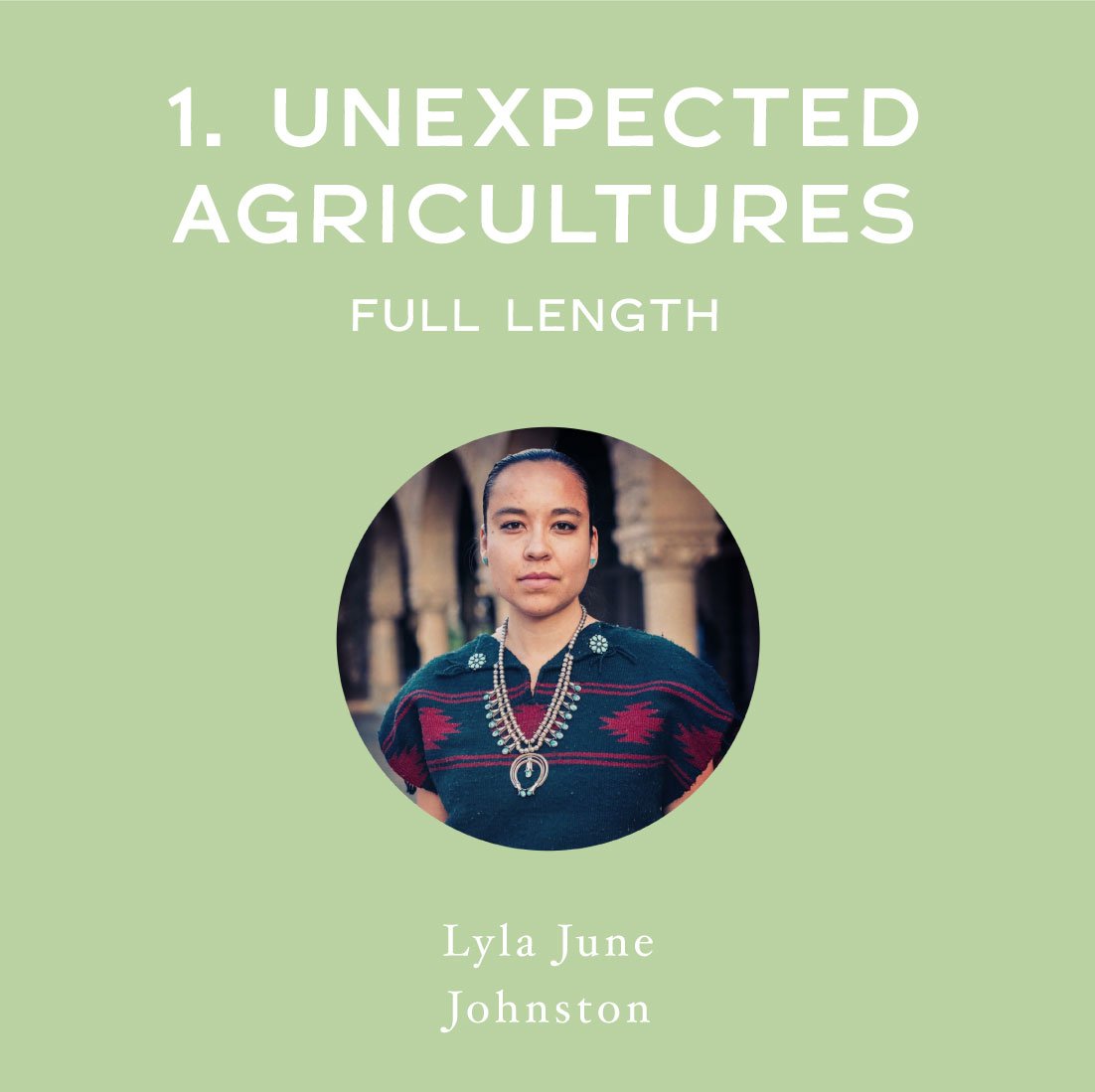[Full Length] Unexpected Agricultures — with Lyla June Johnston
“It dawned on me that what's actually more important than the physical, outward appearance of food systems is the invisible world of the human heart that drives them.”
- Lyla June Johnston
SYNOPSIS:
Lyla June Johnston is an Indigenous public speaker, artist, poet, scholar and community organizer of Diné (Navajo), Tsétsêhéstâhese (Cheyenne) and European lineages. She blends her studies in human ecology at Stanford University, graduate work in Native American Pedagogy at the University of New Mexico, and the indigenous worldview she grew up with.
Lyla and I got together to discuss her brilliant PhD research on Indigenous Food Systems Revitalization. In this interview we discuss what 6000-year-old clam gardens in the Pacific Northwest, buffalo prairies, kelp forests, hemlock boughs, and herring eggs all have in common; the role of reciprocity with more-than-human life in food systems; human beings as a keystone species; the reclamation of our own food production; land fragmentation, and thinking like a watershed.
Guided by indigenous values and understandings, this conversation charts the path to how we can restore our relationship to farming and food, and how these ancient ingenious systems can help us rethink our broken food systems.
GUEST BIO:
Lyla June Johnston is an Indigenous public speaker, artist, poet, scholar and community organizer of Diné (Navajo), Tsétsêhéstâhese (Cheyenne) and European lineages. She blends her studies in human ecology at Stanford University, graduate work in Native American Pedagogy at the University of New Mexico, and the indigenous worldview she grew up with. She is currently writing her PhD on Indigenous Food Systems Revitalisation.
Lyla is a co-founder of The Taos Peace and Reconciliation Council which works to heal intergenerational trauma and ethnic division in the northern New Mexico. She is a walker within the Nihigaal Bee Iiná Movement, a 1,000-mile prayer walk through Diné Tah (the Navajo homeland) that is exposing the exploitation of Diné land and people by uranium, coal, oil and gas industries. She is the lead organizer of the Black Hill Unity Concert which gathers native and nonnative musicians to pray for the return of guardianship of the Black Hills to the Lakota, Nakota and Dakota nations. She is the also the founder of Regeneration Festival, an annual celebration of children that occurs in 13 countries around the world every September.
For more go to her website at https://www.lylajune.com and her presentation on food systems here.
QUOTES:
In indigenous language, the word “food” is verb based. Food is a really complex, gorgeous, sacred process by which certain life forms give their life so that another being may live. And that is amazing. Every day they give themselves to us.
It dawned on me that actually what's more important than the physical outward appearance of these food systems is the invisible world of the human heart that drives them.
Imagine a watershed that soaks the field, cups the earth, floods and soaks the soil, creating mini aquifers in middle of the desert... These peoples were architects of abundance.
SHOW NOTES
Architects of Abundance: Indigenous Food Systems and the Excavation of Hidden History: https://www.youtube.com/watch?v=UxxRV44-wZ0
Cultivating Food Forests with Indigenous Wisdom https://foodrevolution.org/blog/food-forests-lyla-june/
Reclaiming Indigenous European Roots: https://moonmagazineeditor.medium.com/lyla-june-reclaiming-our-indigenous-european-roots-64685c7fc960
Forgotten Fires: Native Americans and the Transient Wilderness - M. Kat Anderson https://www.oupress.com/9780806140377/forgotten-fires/
Braiding Sweetgrass - Robin Wall Kimmerer https://milkweed.org/book/braiding-sweetgrass
Lyla’s podcast: https://www.lylajune.com/podcasts
Seeing Like a State - James C. Scott https://yalebooks.yale.edu/book/9780300078152/seeing-like-a-state/
Agrarian Trust - https://www.agrariantrust.org/
Pacific Sea Gardens - https://www.seagardens.net/




![[Full Length] Unexpected Agricultures — with Lyla June Johnston](https://images.squarespace-cdn.com/content/v1/61e5960411275129ba0c607d/1658128435444-KBCFLKI45Y754WXVUYCZ/Agriculture-Lyla.jpg)
![[Full Length] Unexpected Agricultures — with Michael Ableman](https://images.squarespace-cdn.com/content/v1/61e5960411275129ba0c607d/1658129338344-U3GK0WTQJL9YQU1DIPVK/Agriculture-Michael.jpg)